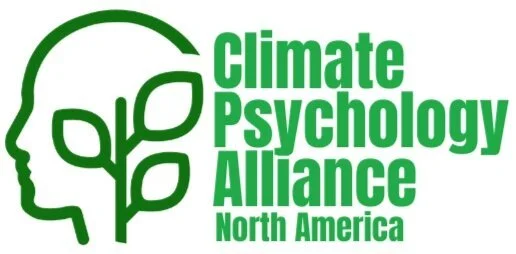I have wanted to start a professional blog for some time as a way to share resources, and also share some of my own thoughts about mental health in this challenging time we are living in. Like many of us, I am feeling stress about all that is happening in our world, from the climate-change driven mega storms impacting coastal communities this summer, to emboldened white supremacists terrorizing communities of color, to our increasing war-games with North Korea (we could make a long list of concerning recent events). For some, it can feel hard to know where to focus your energy, and you may feel overwhelmed hearing the news each day.
Like many of us, I had a lot of feelings following the announcement of the government's current plan to end the Deferred Action for Childhood Arrivals (DACA) program, impacting the lives of some 800,000 young people who came to this country as children. I specialize in working with young adults, and as a mental health professional, I’m thinking about the implications for additional stress and trauma in this community as the October 5th deadline for DACA re-application approaches.
I was interested to see the recent study from Standford published in Science Magazine about the mental health impacts for the 200,000 US-born children of DACA recipients. Not surprisingly, it found that a “Mother’s DACA eligibility significantly decreased adjustment and anxiety disorder diagnoses among their children. Parents’ unauthorized status is thus a substantial barrier to normal child development and perpetuates health inequalities through the intergenerational transmission of disadvantage.”
Image of immigrants rights rally with a sign stating “Stop Separating Families”. Photo credit: Andrew Harrer/Bloomberg News, via the Washington Post.
Most media coverage has centered on the young adults who face possible deportation, and the political immigration debates. This lesser-told story of the intergenerational effects of ending DACA, magnifies the mental health impact. This is one of the many ways that “public life” (ie. politics, laws, etc) has mental health implications. For this reason, I often invite my clients to talk about how public life impacts them, regardless of their beliefs.
You can also read an important account in the New York Times on The Psychic Toll of Trump's DACA Decision. Karla Cornejo Villavicencio explains: "Access to mental health treatment is scant, the demands of simply surviving are overwhelming, the fear of being discovered discourages people from seeking care, and the stigma of mental illness has perpetuated a culture of silence that only worsens the suffering."
I have found a few resources that may help if you or someone you know is feeling heightened stress related to DACA:
1) Here To Stay has published a Mental Health Toolkit, including information on:
- the benefits of and how to use “mindful breathing”
- information on how our body responds to stress with “fight/flight or rest/digest”
- the National Suicide Prevention Hotline:
- English: 1-800-273-8255
- Español: 1-888-628-9454
2) Dr. Nayeli Y. Chavez-Dueñas & Dr. Hector Y. Adames have put together the following resource: Surviving and Resisting: Defending DACA, A Toolkit for DREAMers. They have a great list of suggestions, including the following:
“It may be time to seek professional help if you notice changes in your mood, appetite, or sleep that persist and begins to affect you at school, work, or your relationship with others. There are professionals willing and able to help you.”
3) Here in Atlanta, Freedom University has started a new mental health program linking therapists with undocumented students to provide pro-bono support. While the mission of Freedom U has been mainly focused on educational rights, they recognize that mental health has an impact on one’s ability to learn, and access to affordable mental health care is also a right that is often hard to meet. They state: “While we do not aim to solve the health care crisis for all undocumented immigrants, we are committed to building a network of qualified mental health counselors who can provide pro-bono services to our local community of undocumented youth. In so doing, we hope to serve as a successful model that can be replicated across the country.”
I’m excited about their program, and believe that it can be helpful to therapists who are looking for ways to feel they are contributing in this time, as well as the individuals receiving therapy. At their best, therapy relationships help us therapists grow and build resilience too. If you are a licensed mental health professional trained in culturally competent practices who is interested in providing pro-bono services to undocumented youth, I strongly encourage you to contact them. If you are a therapist in another city, consider contacting a local immigration advocacy organization and ask about starting such a program in your area.
4) The Open Path Collective which helps clients find therapists who offer reduced rates is organizing bi-lingual therapists to support this community.
Finally, I want to share that not all therapists directly encourage their clients to talk about how what’s going on in public and political life impacts them and their relationships, or how they are coping, but I find it may be increasingly relevant to invite this into discucssion of our overall well-being. I don’t require it of my clients, but I look for opportunities to ask about it and invite it into our conversations if it feels helpful to you. Individuals across the political spectrum in this country are reporting feeling that their values are no longer publicly accepted and maybe even among their friends and family. Are you also feeling the impact of an increasingly divided country? If you need someone to talk to, consider contacting me for a free consultation or to schedule an appointment.




